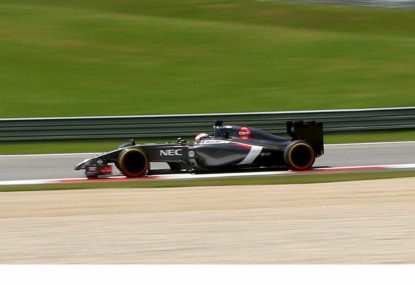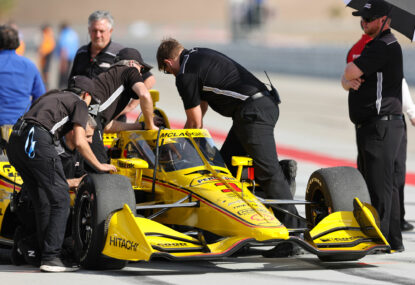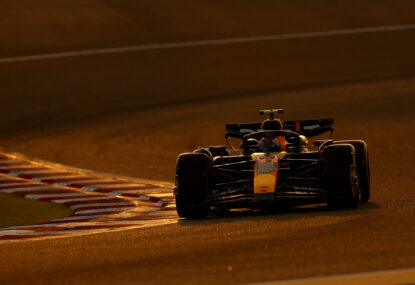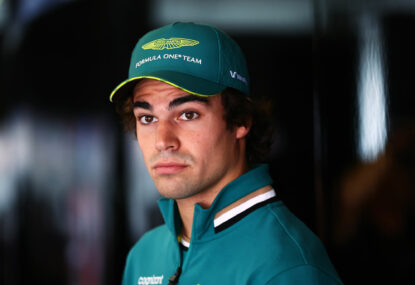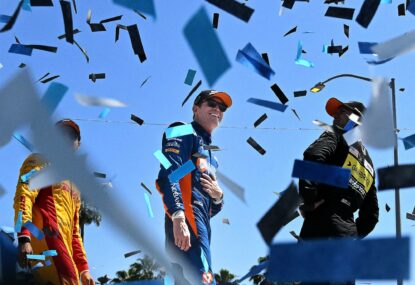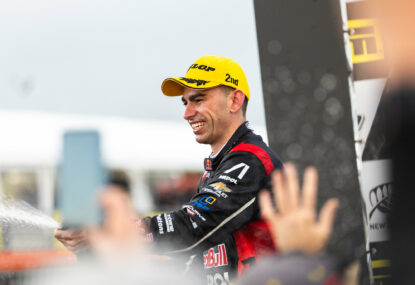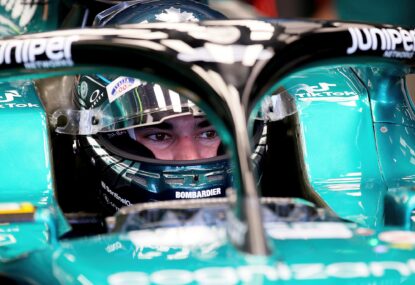Well, that escalated quickly. Twistedly, we probably should have seen this coming.
The 2015 Formula One season was developing a little too smoothly for my liking – indeed, Manor sprung back to life after a summer spent exposed to the corporate defibrillator and has appeared in Melbourne, true to its word.
After a year of scandal, it just didn’t feel right. But Giedo van der Garde delivered.
Giedo Gijsbertus Gerrit van der Garde called pistols at dawn against Sauber Motorsport AG, and the reflexes of his lawyers proved far superior to those of the rickety barristers in service to the ailing stalwart of Formula One.
The spurned Dutchman challenged his current, formerly former, racing team in the Victorian Supreme Court to uphold a decision made earlier in the year by a Swiss tribunal for Sauber to remain faithful to the contract they signed with him in 2014.
The Supreme Court sided with Giedo and ordered Sauber to do as the tribunal, and the contract, said: allow their contracted driver to drive.
Sauber’s peppering by such litigious lead just as the sun began its otherwise peaceful rise on a new season may well prove fatal given the decision to dump van der Garde was borne of the near terminal financial hardship the team experienced in 2014.
Sauber experienced one of the worst seasons of their history last year, the most obvious sign of which was the brutal zero points accrued, two fewer than the resurrected Marussia team and the same number as the now defunct Caterham side.
Coupled with their on-track failure, proposed Russian sponsorship deals failed to materialise, the promising ‘affiliated driver’ Simona de Silvestro ran out of money, and Jules Bianchi was tragically injured at the Japanese Grand Prix, counting him out of what was to be a seat with the team in 2015 and extricating his discounted Ferrari engines from the team’s bottom line.
Things were looking bleak, and Sauber moved quickly to shore up their struggling business. Marcus Ericsson, newly jettisoned from the sinking Caterham ship, leapt aboard with an immediate cash injection, and Felipe Nasr brought Banco do Brasil bucks to the party. The sum of money brought by the young guns was deemed sufficient to settle with van der Garde and the also-contracted Adrian Sutil. Sutil is now seeking damages for the termination of his deal.
But even this cash proved insufficient for the team’s needs, and Sauber was one of the three teams to plead with Bernie Ecclestone, representing the sport’s commercial rights holder, to advance them prize money owing to them for last year’s championship, due to them in staggered payments throughout this year. The injection of around $10 million ensured they could afford to travel to the opening flyaway rounds of the year – their absence was never threatened, but rather foreshadowed.
It casts the legal theatrics on display in Melbourne in a darker, more unedifying light. The fight between Giedo van der Garde and Sauber is more than just pot stirring by a scorned driver struggling with a career crisis, it is a manifestation of two entities struggling for survival: van der Garde jobless, Sauber cashless.
The situation is quickly becoming familiar to followers of Formula One as the teams desperately claw for financial stability in the post-tobacco, post-free-to-air television environment. Sponsorship is down. Viewership is down. Attendance is down – dramatically so at races as historically significant as the German Grand Prix.
All of this points directly to a fiscal sickness ailing Formula One. Simply, it is no longer sustainable to do business in a sport designed to muscle its own teams – with the exception of a select few – out of business.
The situation is made more excruciating by how painfully close the powers that be are to the rational, middle-ground solution.
“There are teams that spend maybe £500 million a season and other people that are trying to work with a £120 million budget, which is still too much,” Formula One CEO Bernie Ecclestone told London’s Daily Mail.
“The regulations don’t hurt the people that can spend but hurt the people who are trying to put a team together.”
His solution? Offer teams the opportunity to buy a stock chassis and engine for £15 million, leaving the rest of their £50 million annual payout to be spend as they wish. Any sponsorship is profit.
Ecclestone is 90 per cent of the way to calling for the long sought-after cap on costs, as proposed by the current and former FIA presidents Jean Todt and Max Mosley.
The road to the Supreme Court is paved by the sport’s sad inability to agree on meaningful cost control. A lack of cost control drove Sauber to rely on optimistic deals that ultimately couldn’t be done, forced them into a panicked contracting of too many drivers with sponsorship packages, and, ultimately, sent them away from the racing circuit and into the courtroom.
There were never going to be any winners this week, no matter the result. Giedo van der Garde, Sauber, Felipe Nasr, Marcus Ericsson, the other teams, and the sport in general continue to be muddied by a stubborn lack of consensus, and they’re likely to become only dirtier in 2015.
And should this be the final straw the breaks Sauber, and despite there being a Dutch buyer likely waiting in the wings should it fall, the tarnishing of the once-proud Sauber brand nonetheless represents a sorry state of affairs.





























































































